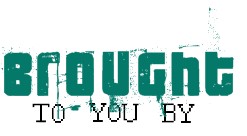Sony and the Future of Digital Distribution

Members of the gaming community are well aware of the recent events surrounding Sony's PlayStation Network (PSN) and its failure to protect consumer data. Because of this, the public might become a little more wary of digital transactions.
In the past decade, more companies have shifted towards digital distribution. It makes your favorite games easier to buy, while offering opportunities for smaller developers to also publish games. Services like Steam -- possibly the best example of "correct" digital distribution to date -- also allow online shoppers to receive great discounts on many popular titles. Unfortunately, in other cases, it's also giving some publishers and developers more control than most consumers want them to have. Some of the personal requirements are also ridiculous, making it mandatory for users to input vital information if they wish to obtain and download software.
Many gamers love the idea of an all-ditigal market -- at least until you mention a little something known as Digital Rights Management, or DRM for short. When heavily regulated (which is almost always), DRM allows developers and publishers to control the amount of times you can play a game, or even how long software and data lasts. Basically, it's like companies decided to lock purchases you've already made.
One radical example of "evil" DRM is when games must constantly remain connected to the internet. For example, when Ubisoft required that Assassins Creed II players remain connected to the internet indefinitely, even though it's a single player game. If the user's connection times out during gameplay, the program will cease to function, causing players to lose all current progress. Even recently, two Capcom titles -- Bionic Commando Rearmed and Final Fight/Magic Sword -- were rendered useless because of PSN outages resulting from security threats.
Some gamers never thought twice about these methods, and truly believed they were an efficient way to prevent piracy without affecting the consumer. But then the "ApocalyPS3" took place last year, causing mass hysteria and panic within many gaming communities. If a network like this can render an actual disc useless without a solid internet connection, imagine what could occur to an all-digital database of games. For instance, how would you like to jump into a cloud gaming service like OnLive one day, just to discover that some angry hacker decided to toast a server containing your purchase records and save data? Even worse, what if OnLive claimed there was no way to recover any records or logs of this information? Okay, so they would probably cover this if you held on to your transaction receipts (great habit I don't practice enough myself), but either way you'd still be at a loss with your saves missing.

Aside from financial savings seen on both ends, the whole concept of an entirely digital distribution network could take its toll on the consumer's convenience. The recent PSN incidents only confirm how pirates and hackers almost always finding ways through the back door. Meanwhile, consumers get left in the dark as their connections are interrupted, or their information is compromised. There's also the issue of data loss, which is a common occurrence with many electronic storage devices. If an honest gamer can't even transfer their legitimate purchases to a new unit because of serial ID discrepancies, then what becomes of their digital library?
Many developers and publishers are honestly doing what they feel is best for consumers, but some gamers need to speak up. The fact that so many people blindly buy products they're unwilling to examine before purchasing is a little scary in itself, and will only cause the company to believe nobody cares. In reality, they're probably just dazed and confused. Once again, look at the PSN crash back in 2010, paired up with this recent chain of events that compromised many accounts and gaming opportunities. Perhaps now that we've had some first hand experience of potential problems in the land of DRM, we'll all be a little more open to alternatives.
And Sony, we (gamers) all love what you've given to the industry, but please understand that your current track record could make us cautious when dealing with PSN and your other online pursuits in the future. Seriously though, we hope PSN is up and running again very soon.
 ApocalyPS3,
ApocalyPS3,  DRM,
DRM,  Digital Distribution,
Digital Distribution,  OnLive,
OnLive,  PS3,
PS3,  PSN,
PSN,  Sony,
Sony,  Steam | in
Steam | in  Articles
Articles 










Reader Comments